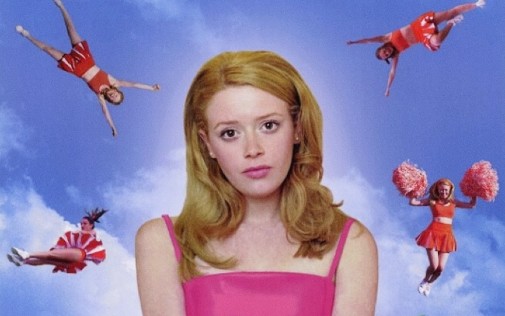
To celebrate Pride Month, the Criterion Channel has chosen to highlight several works of queer cinema as well as various films featuring LGBTQIA+ characters. The selection is varied, spanning from Ettore Scola's Oscar-nominated A Special Day to the avant-garde work of Chantal Akerman and Cheryl Dunne. It's not all high-brow artistry -- there's space for kitschy entertainment, too. Such is the case of 1999's But I'm a Cheerleader directed by Jamie Babbit, a cult classic looking at gay conversion therapy through the prism of outrageous farcical humor. It's a movie I had never watched before, making it a great subject for this particular series…
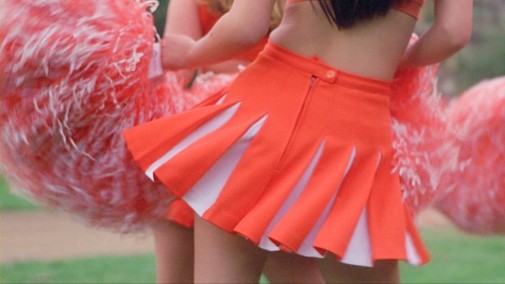
But I'm a Cheerleader centers on the plight of Megan, played by Natasha Lyonne, an All-American high-schooler who is the image of the perfect girl next door with blonde hair and a peppy disposition. Her life looks like an encapsulation of teenage movie clichés, complete with a jock boyfriend and poppy cheerleading uniforms. There's only one problem: Megan is a lesbian, an absolute no-no in the realm of conservative suburbia. Not that she realizes that. While everyone around Megan has noticed signs of supposed sexual deviance – Tofu! Melissa Etheridge!! Vagina-looking flowers on throw pillows!!! – she's none the wiser, believing herself to be perfectly straight.
The audience doesn't need those comical signifiers of gayness, though. Before anyone points to the tokens of lesbianism, we've already seen through Megan's eyes. Her female gaze turns cheer practice into a ballet of slow-motion close-ups, fluttering skirts, and full breasts bouncing up and down, an erotic reverie in shades of orange polyester and pink skin. It's so blatant that it becomes funny, both tantalizing and hilarious, a vision of queer desire on steroids. That sort of exaggeration is a constant throughout the whole picture, though this unashamed queer gaze quickly turns into something more sinister once Megan is forced to go to a conversion camp where she is to learn how to reject her sexuality.
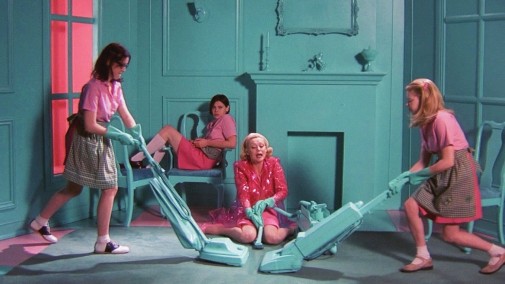
The film trades pom-pom erotica and suggestive slow-motion for a Technicolor hell of heteronormativity. Under the watchful eye of a shrewish Cathy Moriarty, Megan is made a prisoner in a microcosm of aggressive gender conformity where girls wear pink and boys don blue. Inside insanely designed interiors in fifty shades of bubblegum, the young women spend their days cleaning and learning how to be proper ladies, while the men are encouraged to do sports in a landscape full of phallic cutouts. This is social commentary painted in the broadest strokes, traditional values twisted into grotesque (perhaps more truthful) versions of themselves. It's the highest of camp, that's what it is, and it is delightful to watch.
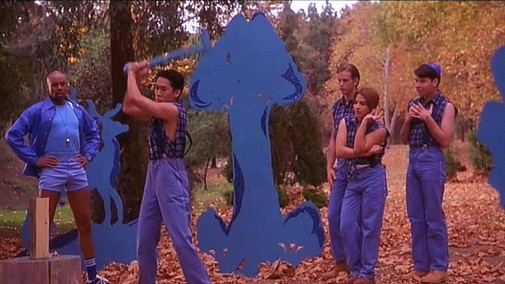
The plot takes expected turns after this, as Megan recognizes her sexual identity and starts to bristle against the teachings of the camp. The mission of conversion therapy seems all the more absurd when its settings are so campy and its examples of successful ex-gays are obvious failures. RuPaul himself plays the man in charge of making the gay boys straight, but his attention is constantly side-tracked by the hunky son of Moriarty's Stepford wife ready matriarch. Visual gags with blatant innuendos abound, including the stroking of wooden shafts that leave RuPaul's camp monitor speechless. It's in this pressure cooker of gay horniness that Megan starts falling for another one of the campers, a tomboyish girl played by Clea DuVall. Their fledgling romance gives the film some needed structure and it sets the stage for a triumphant finale that manages to find glee in the aftermath of familial rejection.
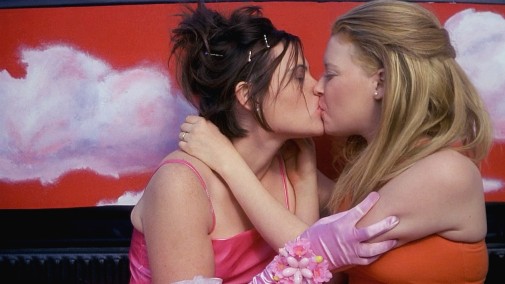
Before seeing But I'm a Cheerleader I knew of its basic plot and was afraid that I was going to witness a dramatization of conversion camp suffering with some jokes thrown in. Thankfully, the final result is far from the cinematic punishment I had feared. We realize the horror of such heinous places and practices but don't need to be tortured by their malevolence. So many works of queer cinema are painful, focusing on the plight of LGBTQIA+ to such extremes that it seems our lives are singularly defined by pain. But I'm a Cheerleader chooses to excavate that pain in search of joy, using the ridiculing of heteronormativity as its best tool. In the end, we laugh at the absurdity of being straight, we applaud the romantic foibles of gay adolescents and bask in the sense of queer community that exists in the margins of mainstream society. I can't think of a better film to celebrate Pride Month. Can you?